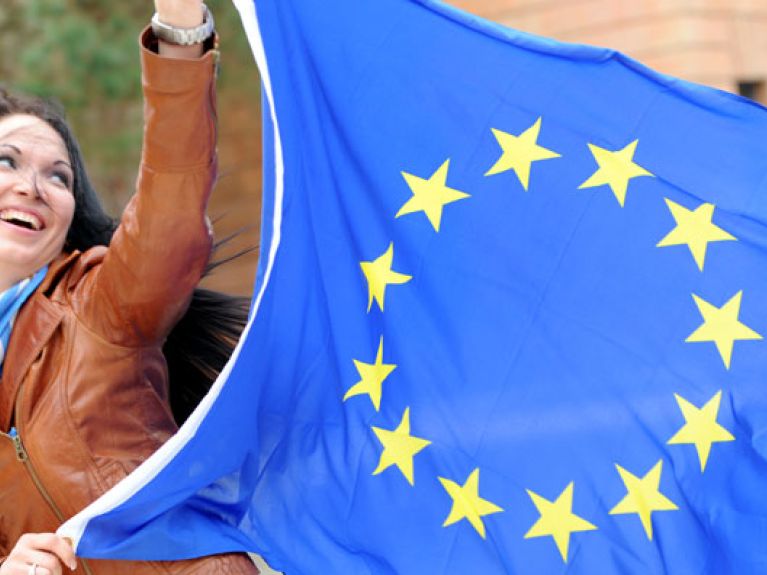Emphasis on the European election
Europe Day 2014 is taking place against the background of the European election, which will strengthen the powers of the Parliament in Strasbourg.

9 May is Europe Day. It celebrates peace and unity in Europe. On 9 May 1950, Robert Schuman, the French foreign minister, gave a speech in Paris in which he presented his vision of a new form of political cooperation in Europe – cooperation that would make wars between European nations inconceivable. His idea was the creation of a supranational European institution to administer and consolidate coal and steel production. This proposal became known as the Schuman Declaration and led to the foundation of the European Coal and Steel Community, which is the foundation of today’s European Union. At the 1985 European summit in Milan, EU heads of state and government agreed to celebrate this event on 9 May every year as Europe Day of the European Union.
Presidential candidates for the first time
In 2014, special emphasis is being attached to the forthcoming European election. It is the eighth European election and the first since the coming into force of the Lisbon Treaty. It increased the powers of the European Parliament in order to boost the democratic legitimacy of the EU. One significant innovation is that the new European Parliament will vote on the European Commission President nominated by the European Council. Previously the Commission President was appointed by the Council – in other words, by the heads of state and government. Approval of the President by the European Parliament was a purely formal matter. In 2014, however, the proposal of the European Council must take into account the result of the European election. Accordingly, the European parties have stood presidential candidates for the first time. Only the candidates of the two large parties are expected to have realistic chances of succeeding Commission President José Manuel Barroso. The Christian Democratic and Conservative European People’s Party (EPP), which is currently the party with the most votes in the European Parliament, has nominated Jean-Claude Juncker, the former Prime Minister of Luxembourg and President of the Eurogroup. The presidential candidate of the second largest party, the Party of European Socialists (PES), is Martin Schulz, the German President of the European Parliament.
Europe Day on 9 May; European election in Germany on 25 May

